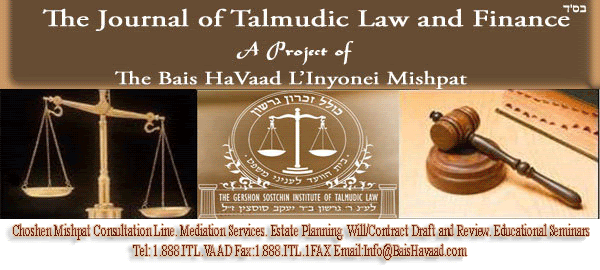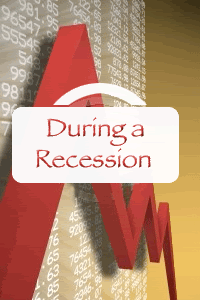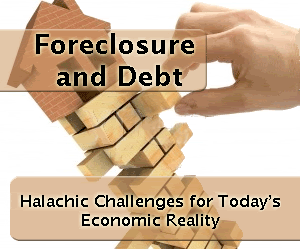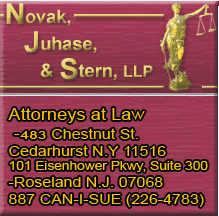The Chofetz Chaim describes a scene from a fantastic party. From the fine, aged wines, the mouthwatering smorgasbord and Viennese table, to the spectacular views and the forty-piece orchestra playing classical music in the background, nothing seems to be missing from this scene of absolute pleasure. There is however, one slight problem. This party is taking place on a narrow ledge hundreds of feet above the city streets. There are no railings or fences; a wrong move, a strong wind, or a small shake of the building, will cause the party-goers to plummet hundreds of feet to the ground below. Would anyone there actually enjoy the food? Would they relax from the soothing music, or even notice the aged wines? Would anyone be foolish enough to even think of climbing to the top of the tower to indulge themselves of the available pleasures?
The Chofetz Chaim [1] writes that this parable reflects our lives today. People devote huge amounts of time and energy chasing after luxuries and raising their standard of living. When times are good and the economy is booming, this appears to make sense. People are earning enough income and see little downside to indulging themselves with exotic vacations, fancy cars, or opulent mansions. But today’s luxuries become tomorrow’s necessities. A ‘well-deserved treat’ quickly becomes a way of life. And when the wheel begins to turn, and credit conditions tighten, it becomes a struggle to maintain one’s lifestyle in a deteriorating economy. It is equally difficult to ‘downsize.’ It takes tremendous strength to accept the new economic reality, and to adjust your family’s spending patterns to reflect what you can truly afford. A person thus traps himself by his own enjoyment. The higher he raised his standard of living, the greater the danger to himself and his family.
The correct time to address this issue would be at the top of the market. Yet, such messages are routinely ignored in the belief that the good times will continue forever. It is therefore important to stress this message now when conditions are worsening and people might be more inclined to listen. It is important to articulate the impossible position people place themselves. Unless they were able to build up significant savings when times were good, they must adapt by either cutting back on spending, going into debt, or, worst of all, trying to cut some halachic corners in a desperate attempt to make money.
The Chofetz Chaim writes that this is the root cause of people engaging in questionable business practices. They feel themselves caught in an impossible situation, and the only way out seems to be by compromising one’s regular standards in a desperate attempt to maintain the charade of his affluent lifestyle. And all too often, these efforts fail. Eventually, the person’s debts and ever-increasing expenses become too much for him to handle, and the truth emerges. His creditors become aware of his true situation, and his short-sighted attempts to live the good life bring misery and despair to his entire family.
A deteriorating economy brings with it new halachic questions as well. A few years ago, the most common Choshen Mishpat questions involved bar metzra and ani hamehapech – people fighting for the opportunity to buy properties. Recently, there was a shift in the questions. People were suddenly more interested in questions regarding mechusar amana and specific performance- when and how they were able to renege from a commitment and withdraw from a deal.
The unfortunate reality is that today, the most common questions relate to g’viyas chov – collecting debts from borrowers who have defaulted. Foreclosures, short sales, and tax liens have suddenly become popular, as people try to profit from the effects of the subprime crisis. This article will examine a few of these contemporary issues, and explore some of the halachic complications they may involve. As with any halachic issue, actual questions should be presented to a Rav with experience in these matters.
Buying Debt
One increasingly popular tactic to take control of a property is to purchase mortgages or debt for which the property was pledged as security. Financial institutions are often eager to move bad debt off their books, and have little interest in initiating a foreclosure. They are often willing to sell the debt at a substantial discount to investors that are willing to do the actual foreclosure.
Buying these debts leads to a number of interesting questions. The first question involves ribbis. If the borrower is Jewish, the investor who buys the debt will become the de facto lender, and will now be collecting interest. The interest that accrued before the sale is perfectly permissible since it accrued at a time that the loan was owned by the non-Jewish bank [2]. The issue of concern is the interest that accrues after the debt was owned by a Jewish investor. Under normal circumstances, such interest would be prohibited[3].
Foreclosures
The next issue is the appropriate venue for foreclosures. Typically, any issue between two Jewish parties must be adjudicated in a bais din. There are two reasons why a bais din is required. Firstly, if the parties litigate in secular court, the verdict will be based on secular law as opposed to halachah. If the award is greater than what they are entitled to according to halachah, the excess monies are considered gezel, theft. The only way to ensure that the verdict reflects halachah is by presenting their claims to a qualified bais din. The second issue is arkaos. Even if a secular court will rule in accordance with halachah, the very act of litigating in a secular court is biblically prohibited and causes a chilul Hashem, a desecration of G-d’s name. The Rambam uses unusually harsh language in reference to arkaos, calling the parties blasphemers.
It would seem that if both parties are Jewish, the creditor should not be allowed to foreclose through a secular court since the court may grant him rights that he is not entitled to according to halachah. However, this is not true for an interesting reason. The original debt was between a non-Jew and a Jew. The R”osh (responsa 18:1, quoted by Rama 369:11) writes that when a person buys a debt from a non-Jew, he assumes all of the rights that the non-Jewish lender had from the note. This applies even though these rights may be greater than the rights halachah typically affords to a lender. Therefore, by definition, foreclosing through a secular court cannot grant the creditor additional rights that a bais din would not have recognized; the creditors’ halachic rights in this instance are defined by the rights granted by the secular courts to the original holder of the note. Even if the issue were litigated in a bais din, the bais din would look to secular laws for guidance in this particular instance.
This resolves the first issue. However, we must still deal with the issue of arkaos, litigating in secular court. Arkaos usually applies even if secular law coincides with halachah. The prohibition is not based on the resulting verdict; rather it is the actual litigation that is prohibited and creates the chilul Hashem.
There is an interesting dispute between the Maharsham [4] and the Orchos Hamishpatim [5] that is relevant to this issue. The Maharsham writes that a chov barur, an undisputed debt, may be collected by foreclosing through the secular court without the permission of a bais din. (It should be noted that even the Maharsham concedes that as a midas chassidus,a righteous practice, one should first get permission from bais din before initiating the foreclosure process.) He explains that the prohibition of arkaos, litigating in secular court, does not apply since this is not considered litigation; it is simply a formality necessary to take possession of the property that is due to you. In addition, bais din today does not have the ability to physically take possession of a property. Accordingly, one may foreclose through a secular court system. The Orchos Hamishpatim objects to this leniency and points out that there are many halachos regarding collecting debts. For example, how much time a debtor is given to raise the funds he needs, the type of assets he is obligated to sell, how the assets are sold, and a number of other issues. As such, a bais din is necessary to determine the lender’s rights, and the correct way to collect the debt. Therefore, one must first bring the matter to a bais din before initiating a foreclosure process. The Orchos Hamishpatim adds that the only valid application of the Maharsham’s leniency would be when the borrower admits he owes the money, has the necessary assets, but nevertheless refuses to pay.
Practically speaking, a typical foreclosure scenario will be allowed to proceed in court according to all opinions. Since there is a mortgage note that creates a lien and specifies the rights of the creditor, there is a clear agreement as to when and under what conditions the property can be auctioned off by the lender. Most of the halachic arguments that may arise when collected debts are specifically addressed in the mortgage note, and there is nothing left to litigate in a bais din. In addition, as mentioned before, the creditor is entitled to any rights that the non-Jewish lender would have had when he originated the note. Since the rights are not in dispute, and foreclosure is not considered litigation, there is no prohibition against initiating foreclosure proceedings in secular court (although as noted before, the Maharsham adds that it is a midas chassidus to send a hazmana, a court summons, from a bais din even in these circumstances).
There is, however, an important caveat. If the borrower is challenging the validity of the debt, there is now true litigation between the parties. Such litigation would require a bais din according to all opinions. Furthermore, even if the debt itself is undisputed, courts may impose additional fees such as interest charges, court costs, or other fees that may not be halachically appropriate. There may be other issues regarding the time frame and process of seizing assets as well. Additionally, if a heter iska, a contract which structures the loan in a way which allows the lender to collect what otherwise would be forbidden interest, was executed between the parties, there are often halachic issues regarding claims of losses. A bais din would have to be consulted to deal with any such issues.
In conclusion, in many cases there is basis to use the secular court system to collect an undisputed debt. However, one should certainly consult with a dayan or bais din to ensure that that your specific instance does not involve any corollary halachic issues.








 How to Become Rich During a Recession
How to Become Rich During a Recession
 Foreclosures and Debt: Halachic Challenges of Today’s Economic Reality
Foreclosures and Debt: Halachic Challenges of Today’s Economic Reality







